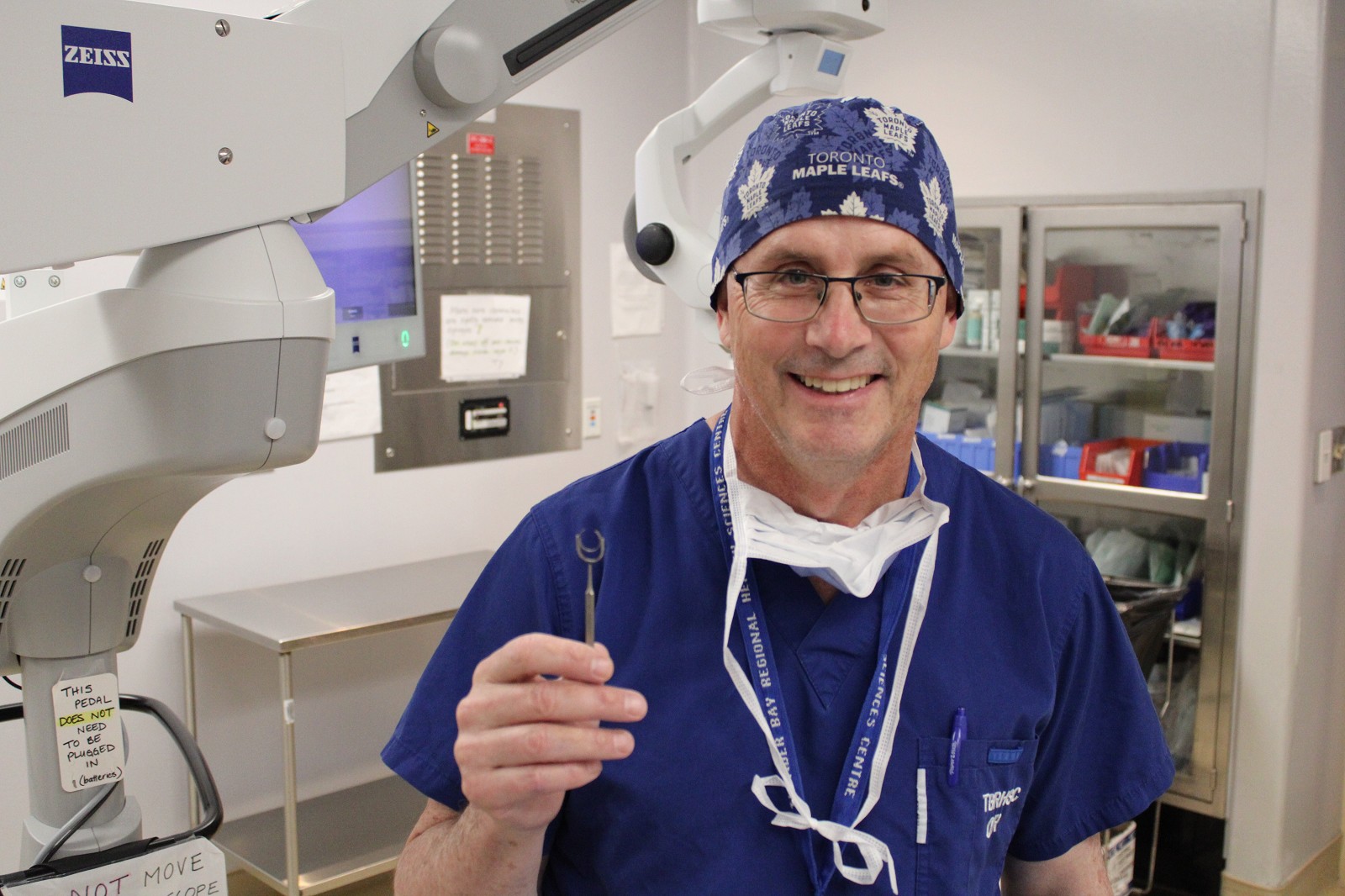These Aren't Lasers, but They're Just as Important to Eye Care – and They Need More of Them
Published Monday, July 28, 2025

Dr. Chris Francis, ophthalmologist at the Lions Vision Care Centre, relies on precision tools to restore patients' sight. You can help provide extra instrument trays to prevent delays and keep surgeries on track.
Dr. Chris Francis, an ophthalmologist at the Lions Vision Care Centre, will be the first to tell you: eye surgery instruments are not sexy. They're not exciting like lasers and high-def cameras and the amazing things they can do.
But show these tools to a surgeon from a hundred years ago, they'd be overwhelmed with that same sense of wonder.
“Without these precision instruments, we wouldn't be able to perform the thousands of eye surgeries that we do today,” Dr. Francis said. “The tools themselves may not be sexy, but for our patients struggling with poor vision, the things we can do with them can seem like miracles.”
Take cataract surgery. As we get older, the lenses in our eyes can cloud over, blurring vision. Cataract surgery replaces that aging lens with a new artificial one to give patients back their vision. That would be impossible without today's modern precision instruments.
When Dr. Francis is performing cataract surgeries, he usually books 15 surgeries in one day to keep up with demand. That means he needs at least 15 trays of cataract surgery instruments.
“It takes hours to sterilize those instruments after each patient,” Dr. Francis said. “Waiting hours between each patient would obviously reduce the number of surgeries we could do in a day. It is not practical. That is why we need one set for each surgery that day.”
However, things happen: a tray gets dropped or one of the instruments gets broken, which means another tray is opened to get that one particular instrument.
“Eye surgery is precise and delicate,” he said. “You need the right tool for the right job. Anyone who has spent an hour looking for that small screwdriver to tighten that tiny screw knows exactly what I mean.”
That's why it's important to have extra instrument trays. It's not a question of if something will go wrong, it's when.
“The problem is, we are running short on instrument trays,” Dr. Francis said.
This month, Dr. Francis wrote a letter to donors asking for their support to purchase new sets of instruments trays for cataract surgery, strabismus surgery (eyeball alignment), and DCR instruments for tear duct repair. He added that this last one is a great example of how community-supported programs like the Lions Vision Care Centre helps attract surgeons.
“Dr. Georges Nassrallah flies from Toronto up to four times a year for speciality procedures such as tear duct surgery, so patients don't have to fly down to him,” Dr. Francis wrote. “Travelling surgeons love coming to places with strong community support.”
Community support also attracts permanent ophthalmologists including our two newest eye surgeons, Dr. Ajay Kamath and Dr. Alex Pisig.
“I can tell you firsthand that any surgeon joining a program looks closely at how well it is supported. Your donations attract new talent here by ensuring we have the equipment we need,” he said.
You can help! Your donation to the Thunder Bay Regional Health Sciences Foundation will give the Lions Vision Care Centre the extra instrument trays needed to safely provide eye surgeries for their patients, reducing the risk of delays. You can donate online at healthsciencesfoundation.ca/vision or call the Health Sciences Foundation's Donation Centre at 807-345-4673.
Article By: Graham Strong